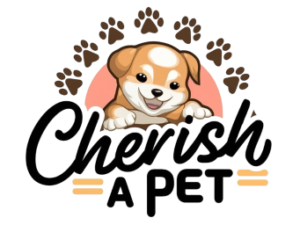Ferret food in captivity should mimic its natural diet in the wild. Ferret food should be rich in proteins and low in carbohydrates to support its digestive system.
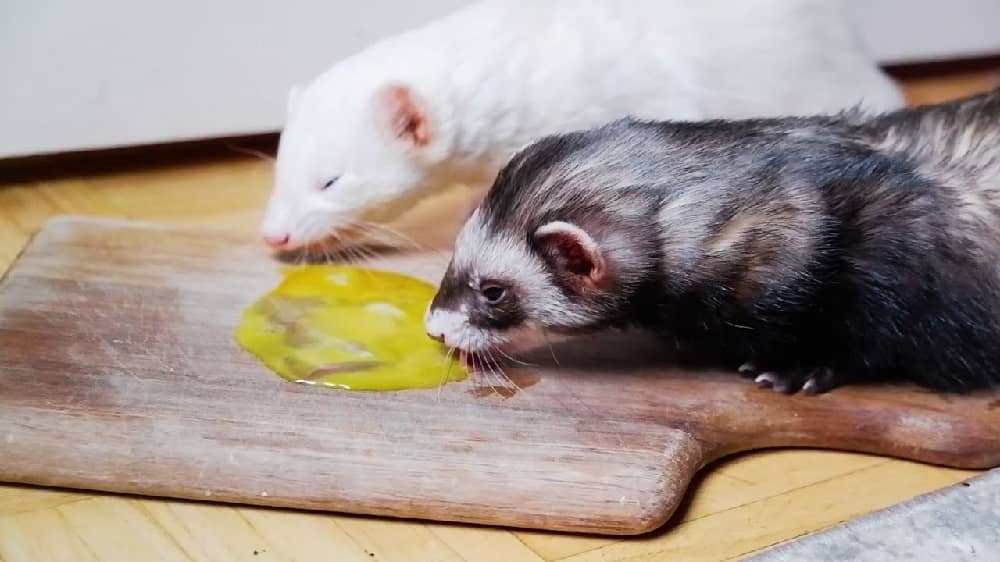
In their cute, fun-loving demeanor, and the inquisitive nature it exhibits, ferrets make a great pet. But to carry on the health and well-being of this energetic creature, it is of utmost importance to be aware of what you can feed this ferret.

These good-natured, extremely active, curious animals are hugely dependent on a diet high in animal protein and fat, yet low in carbs; otherwise, it would box them into very serious health problems. Knowledge of their natural dietary habits and ways of imitation in captivity reveals that a proper diet may be offered to support vivid living and special nutritional needs.
We look more closely at feeding ferrets specifically, at their natural diet and the best type of food available for ferrets bred as pets. We will debunk a couple of the common myths and extend some tips to owners on how to ensure your ferret is consuming all its necessary nutritional intake
The Natural Diet of Ferrets
Ferrets are obligate carnivores if left to do what they do best. They catch animals such as rodents, rabbits, and birds. So that they can be healthy, the prey must form the diet and the animal protein majority.
The ferrets catch this prey in their natural habitats, and so they obtain most of what they need nutritionally. So, when a person is raising a ferret as a pet, he or she needs to mimic such a diet closely, which will be carnivorous naturally.
Major Nutritional Requirements
There are certain nutritional requirements essential for ferret health. These include:
Rich in Proteins:
According to the British Ferret Club, ferrets may demand substantial amounts of animal protein based on their diets. Their Gastrointestinal tracts line up with the consumption of flesh; hence, that is their most desirable nutrition.
Fat:
Besides the intake of protein, ferrets need a lot of fat in their diet. Ferrets get their energy from fat.
Low Carbohydrates:
Ferrets do not need carbohydrates in their diet, which makes their food quite different from that of other animals. The presence of a lot of carbohydrates in their diet may lead to some health complications like insulinoma, which is quite common among ferrets.
Vitamins and Minerals:
Important minerals and vitamins: The ferrets need iron, zinc, calcium, phosphorus, potassium, magnesium, vitamin A, vitamin D, vitamin E, and vitamin B12 for their optimum growth. These are provided naturally through diet. However, for any specific nutritional deficiency supplements can be given as per the recommendation by the veterinarian.
Selecting the Perfect Diet for Your Ferret
With so many decent possibilities, the choices available to feed your domesticated ferret have their pluses and minuses. It would seem ideal for those owners who want to feed a raw or even homemade diet, but it does take a lot of careful planning and knowledge of nutritional requirements.
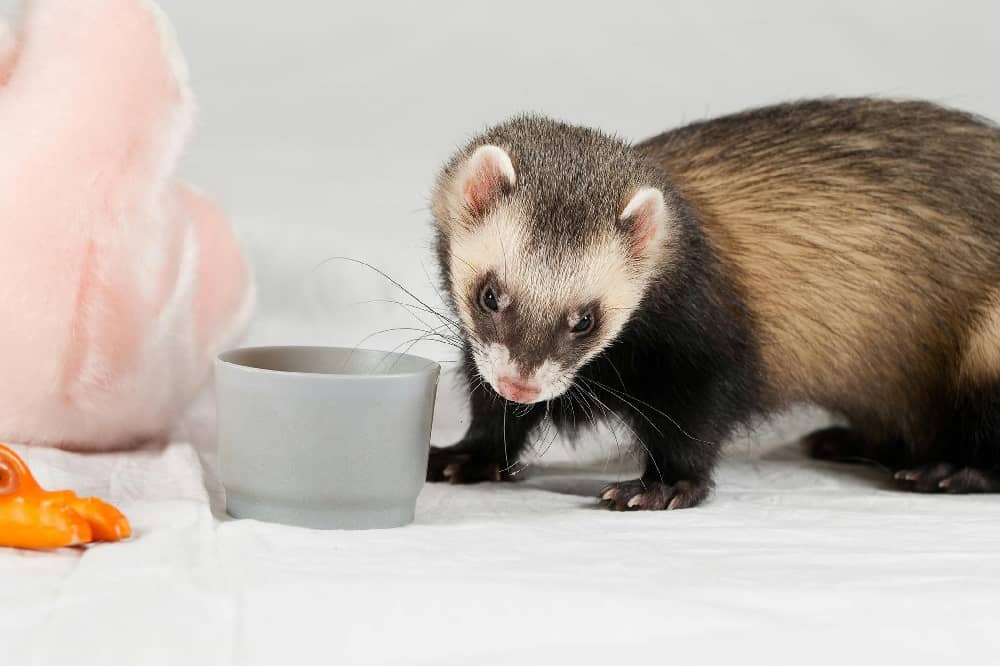
The natural diet of wild ferrets is prey base: raw meat, bones, and organs in balance. This can be helpful but is also hazardous because of contamination with bacteria, and dietary imbalances if not well controlled.
Commercial Ferret Food
The choice of any other product could never be wrong; however, the positive and negative points about them are that commercial ferret food is available. Often, commercial food designed for ferrets contains a nice mix of proteins, fats, and nutrients to ensure that it is well-balanced.
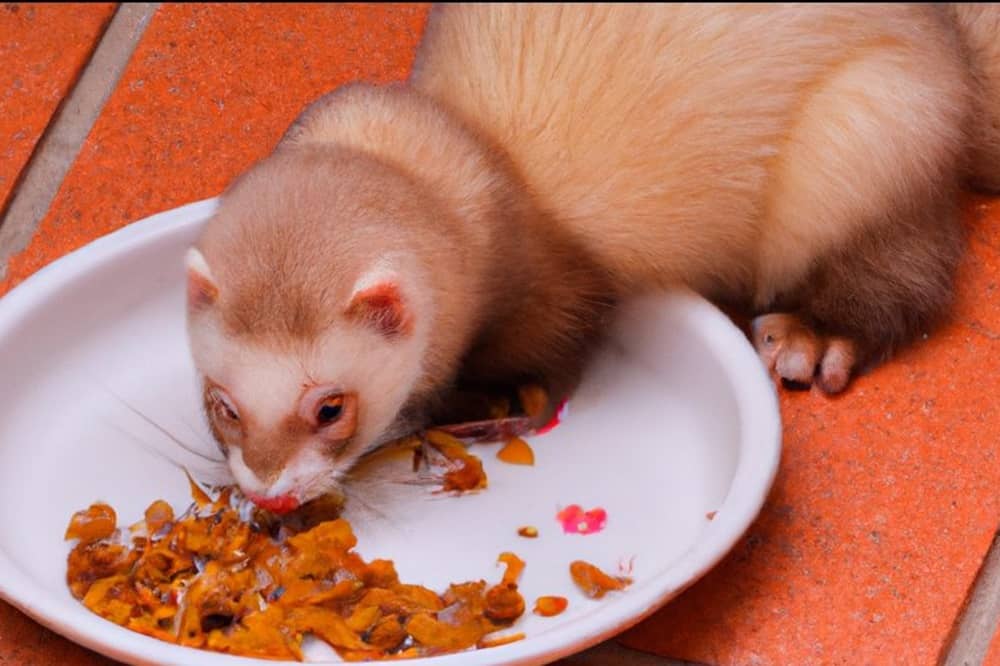 It should be relatively low carb and doesn’t have the fruit/vegetable/other fillers that aren’t good for ferrets.
It should be relatively low carb and doesn’t have the fruit/vegetable/other fillers that aren’t good for ferrets.
When selecting a commercial food for the ferret, look for the following:
Protein Content is Up:
Around 30-40% of it should be derived from animal sources.
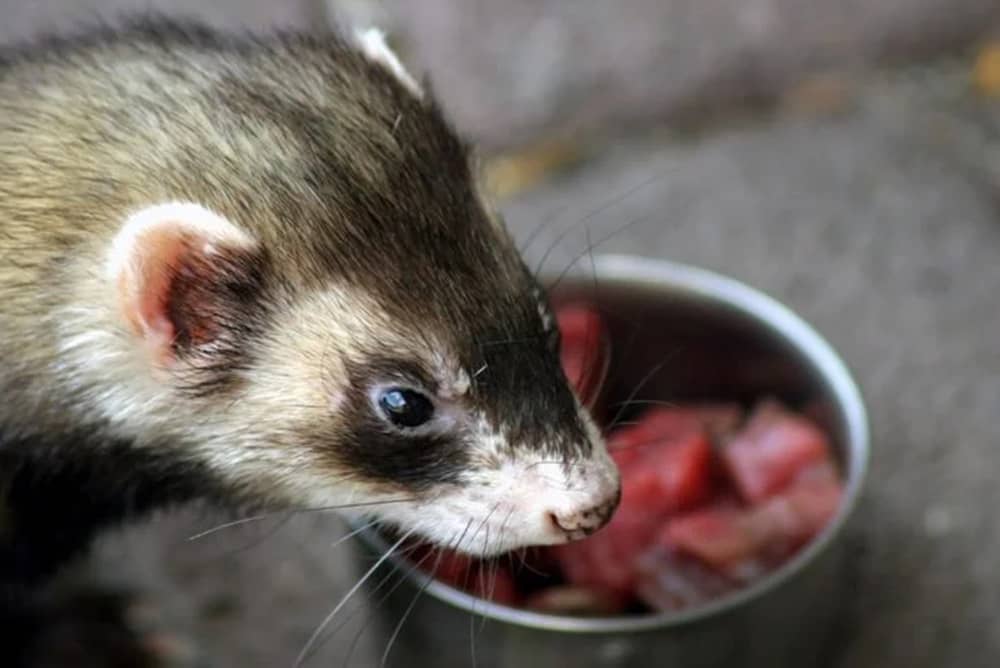
Fat Component is High:
Out of the total components, fat must be around 15-20%.
Carbohydrates Are Low:
Watch out for the barriers of grains or fillers put in there.
Raw Diet
A raw diet, often called a “BARF”(Biologically Appropriate Raw Food) diet, is a mimic of the natural diet of the ferret as closely as possible by using raw meat, bones, and organs.
The pro of that diet is that raw food is the most natural and nutritionally complete diet for a ferret, while its con is that it is hard to plan to be complete and balanced and may be contaminated by bacteria.
Homemade Diet
Some owners prefer to cook their ferrets’ meals with homemade food. This way, one has total control over the ingredients, although it only works well if one fully understands what a ferret needs nutritionally. A homemade diet must incorporate some raw or cooked meat and organs and appropriate supplementation to become a balanced diet.

You can switch to a commercially made raw when you’re looking for something with the following ratio: 80% muscle meat, 10% bone, 5% heart, 5% other organs, and a mix of at least 3 different animal species (such as duck, chicken, and beef). You will probably have to find this locally in a pet store’s fridge section.
Your ferret may also occasionally like eating eggs as a treat.
Ferret Food to Give
The following raw meats can be fed to ferrets:
- Wings of chicken and stripped carcasses
- Turkey necks
- hare
- Gamebirds
- Pigeons
- beef minced
- Lamb
- Offal
- Heart of a lamb
Raw animal bones help your ferret’s teeth get clean and provide calcium
- Hens
- Lamb
Ferret Food to Avoid
Nutritious food is a necessity, but some food groups can be hazardous to ferrets and pet owners should not feed them at all costs. More than what is to be fed on ferrets is what is to be abhorred, with the corresponding need for knowing what should be avoided.
Because complex carbohydrates contain fiber, they shouldn’t be the primary source of nutrition for ferrets. Because ferrets are unable to digest fiber, their diets are deficient in nutrients.
They lack a cecum, which is a portion of the digestive tract in many animals and is capable of producing bacteria that break down complex carbs, which is why they are unable to digest these.
Furthermore, a diet high in carbohydrates may cause your ferret’s blood to contain too much glucose. This may lead to insulinoma, or cancer of the pancreatic beta cells, as stated by Susan Brown, DVM.
Here are a few such foods:
- Foods with a high content of sugar, such as candy, chocolate, and sweet snacks, can cause deadly health issues for your ferret, which are inclusive of insulinoma.
- Ferrets are lactose intolerant, and an excessive amount of dairy might mess up one’s belly.
- These contain carbs that are not easily digestible by a ferret and may cause upsets in its digestive system.
- This diet has a high amount of grains and cereals, which are inappropriate to feed to a ferret for the reason that these contain too many carbs.
- Never feed your ferret any type of processed foods; human junk foods are included in this category, too. For one thing, the latter are likely to damage the health of your ferret.
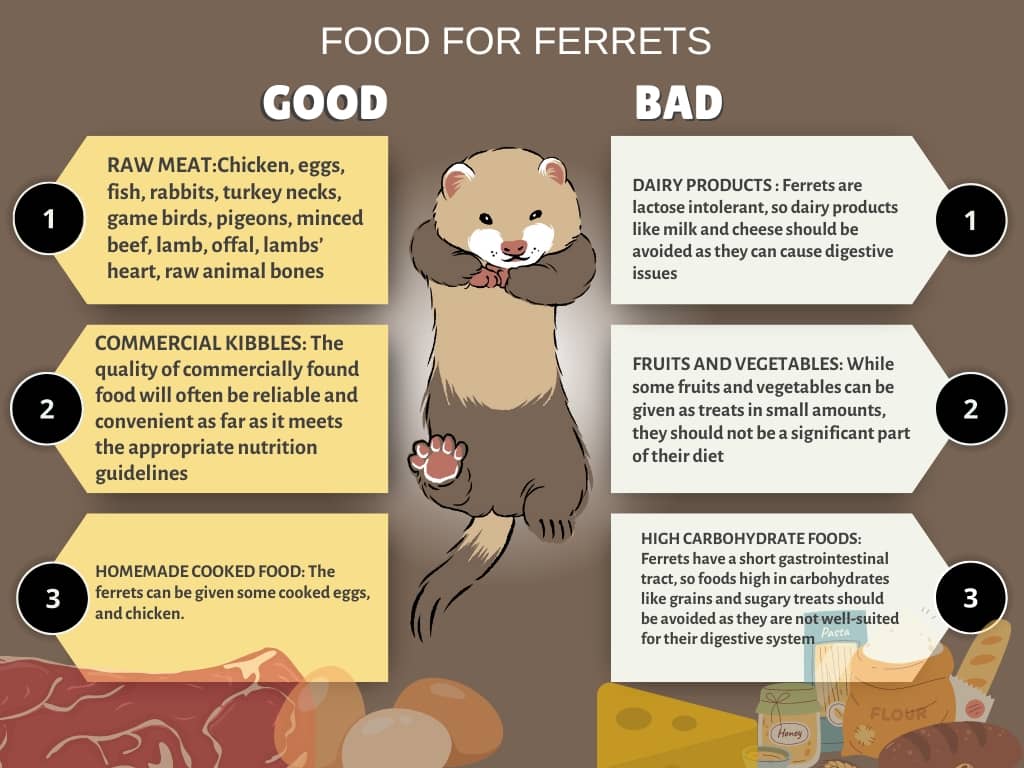
Why Balanced Food for Ferrets is a Must?
Obviously, very important for the health of a ferret is a balanced diet, but, at the same time, monitoring and regular check-ups are equally necessary. Some signs of a healthy ferret are listed below.
- Active and Playful
- Shiny Coat
- Healthy Weight
- Clear Eyes and Ears
With every passing visit to the vet, it is more likely that if any onset of health issues is about to occur, it is identified in time and the vet confirms whether your ferret is being given the appropriate nutrition or not.
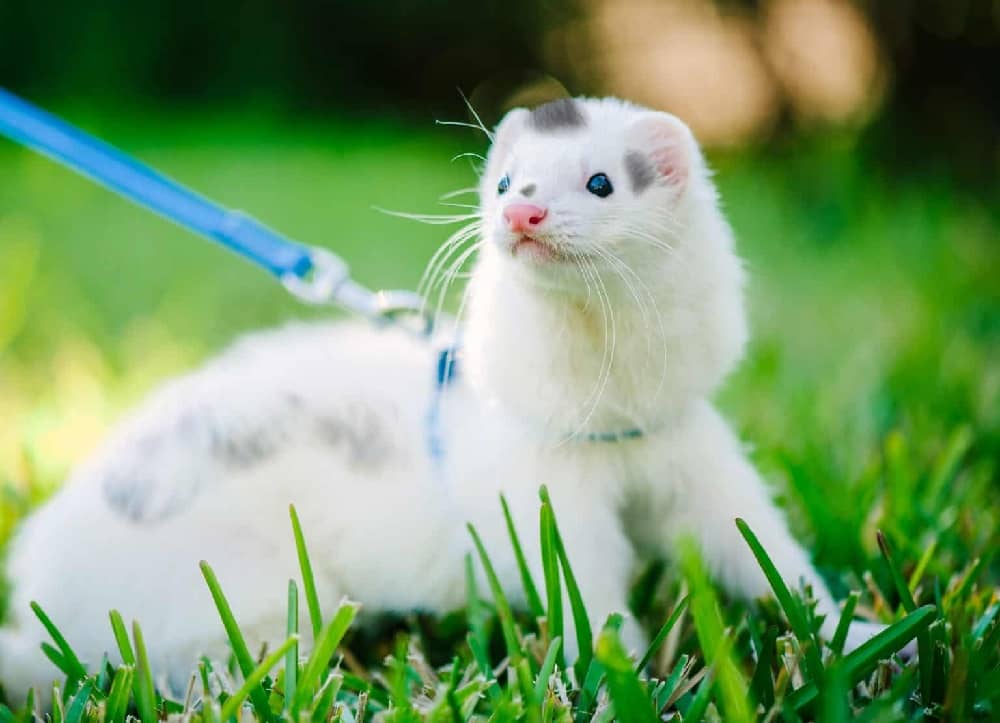
Frequency of Feeding and Portion Control Of Ferret Food
Free-feeding ensures the availability of food at all times corresponding to its natural eating pattern of small and frequent meals. Always ensure fresh water is available to them and clean their water and food dishes at all times. Now, watching your ferret’s health is a life-long process. Ferrets have swift metabolisms and small stomachs.
They require small frequent daily feedings. Despite their similar appearance to dogs, their nutritional requirements are unlike dogs, and it is not highly recommended to treat them as such to emphasize feeding schedules like meal after meal.
This way, known as free feeding, they can nibble from such small quantities frequently in the same way they do in the wild.
Bursting the Myths About Ferret Food
There are very many fallacies about diet. Misconceptions are very common, especially regarding the ferrets. Diet misconceptions for ferrets are some of the most rampant. One has to rely on facts based on evidence. For instance, some high-quality cat foods can be used in a case of exigency; but, for sure, these are not apt for serving in the long run as they are not going to supply the ferret proteins and all the necessary nutritional supplies. Fruits and vegetables are of zero value to the ferret and even dangerously concerned as far as digestion is concerned.
- Can Feed Them Cat Food: We should never feed our ferret cat/ dog food as the nutritional requirements are different for cats and ferrets. Ferret-specific food should always be best.
- Ferrets Need Fruits and Vegetables: Ferrets don’t require fruits and vegetables in their diet, and such things may cause many stomach problems, with no value at all to the ferrets.
- All Commercial Ferret Foods Are the Same: Commercial ferret foods will differ from one another. You want to select a good quality brand and understand what it should be, in terms of protein and fat content.
- Ferrets Can Thrive on a Vegetarian Diet: Ferrets are obligate carnivores, and there is no way that they will survive if you put them on a vegetarian diet. Animal fat and protein are the necessities for their survival.
What Food is Suitable for a Baby Ferret?
A baby ferret’s (kit’s) growth and development depend heavily on proper feeding. Here’s a thorough explanation of what to feed a young ferret:
In the case of Unweaned Kits:
Milk Substitute: The kit requires a specifically designed milk replacer for ferrets if it is still nursing, which is typically the case at 45 weeks or less. If ferret-specific milk is not available, you can also use a kitten milk replacer (KMR). Cow’s milk is not suitable for ferrets; avoid using it.
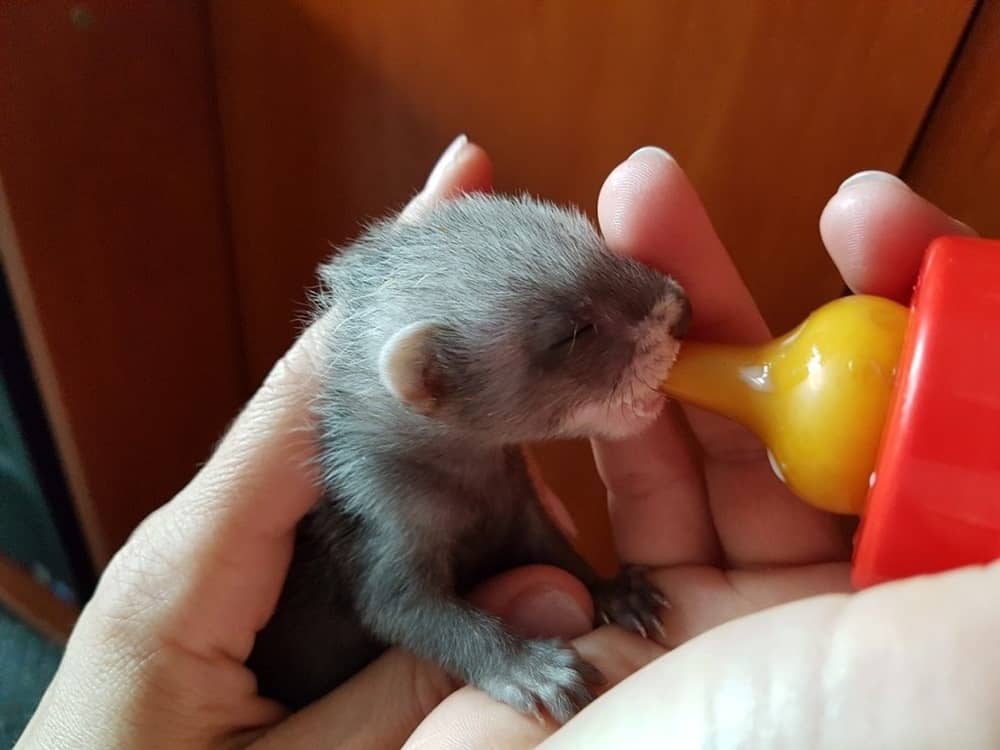
Feeding Schedule: Kits require feedings every three to four hours, even at night.
Feeding Procedure: Feed with a syringe or little bottle.
Making the Switch to Solid Food (4–8 Weeks):
Premium Ferret Food: As soon as the kit begins to be weaned, provide premium ferret kibble. Seek a ferret-specific diet that is high in fat (18–20%) and protein (35–40%).
Kitten Food: Due to its comparable nutritional composition, premium kitten food can serve as a temporary substitute for ferret-specific food in the event that it is not readily available.
Wetting Kibble: To make the kibble easier for the kit to eat, first moisten it with warm water. Reduce the water gradually until the kit becomes acclimated to solid food.

Fresh Meat: Add little servings of raw, fresh meat, like turkey or chicken. This helps replicate their natural diet and supplies vital nutrients.
Raw vs Cooked: While some proprietors would rather serve meat uncooked, others choose
Kits That Are Fully Weaned (8 Weeks and Older):
Dry Kibble: Kittens should have little trouble consuming dry kibble at this age. Make sure the kibble stays a premium brand designed specifically for ferrets or kittens.
Fresh Meat: As an addition to their diet, keep providing fresh meat.
Snacks: You can give out snacks now and again, but steer clear of sugary or high-carb treats. Small pieces of cooked meat or store-bought ferret treats are suitable snacks.
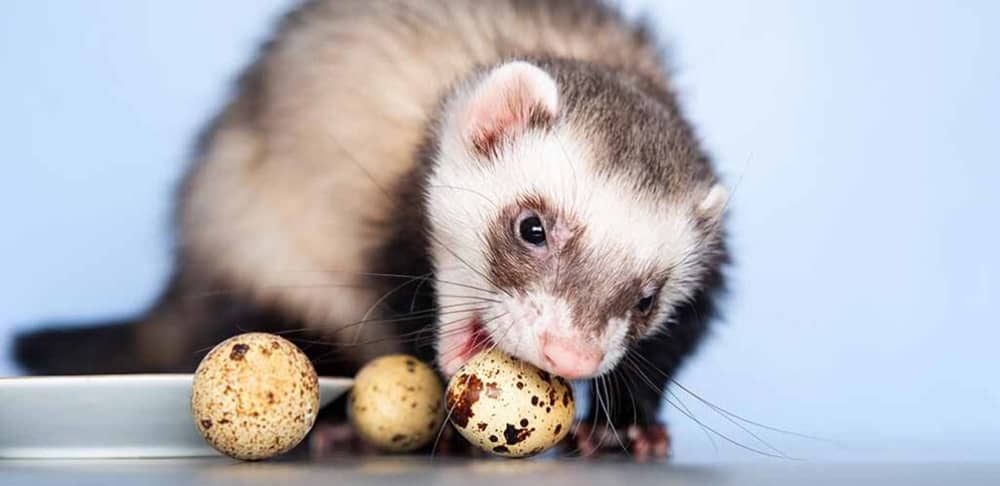
Frequently Asked Questions About Ferret Food
Question: Which is the best food for a ferret?
Answer: The best would be high-quality, commercial food for ferrets with a minimum of 30-40% animal-based protein, 15-20% of fat, and a low percentage of carbohydrate.
Question: Is cat food safe for ferrets?
Answer: No, we should not feed cat or dog food to our ferrets at any stage. The kibble size is different and ferrets find difficult to chew. Moreover, the nutritional contents required by both breeds are not the same. A ferret-formulated food product is always ideal.
Question: Should raw diets be considered safe?
Answer: A well-thought-out and balanced raw diet may be quite safe and appropriate. It should combine a balance of raw meat, bones, and organs. However, it is contaminated with bacteria and must be carefully controlled.
Question: How often should I feed my ferret?
Answer: Because these animals are frantic eaters with high metabolic rates and relatively small stomachs, food should be accessible all the time. Free feeding enables them to consume small amounts of food several times a day.
Question: Can ferrets eat fruits and vegetables?
Answer: No, your ferrets are not to eat such items. Whether these foods are small or large, they contain carbohydrates that are simply not going to suit their health.
Question: What foods should I avoid giving my ferret?
Answer: This ranges from sugary, dairy, fruit, vegetable, grain, and processed foods that may offer digestive upsets as well as other ill health problems.
Question: Do you need to give your ferret supplements?
Answer: Usually when a high-quality commercial diet specifically for ferrets is fed, additional supplements aren’t necessary. Occasionally, with homemade and raw diets, supplementation is necessary to balance the diet correctly.
Question: Can ferrets drink milk?
Answer: No. Ferrets are allergic to lactic acid; milk can disturb their stomach. Instead, give them fresh water.
Conclusion
Responsible ownership of domestic ferrets means understanding their basic needs for proper nutrition, and management. Time and research by the pet’s owners, becoming a member of certain organizations for getting updates, combined with good diet options, enable them to be healthier, leading them to a more active lifestyle in a more fulfilling manner.
Regular visits to the vet can help in detecting any irregularity at an early stage.
In short, a happy ferret is a well-fed ferret. A proper diet invented according to their carnivorous nature fuels their playful spirit and overall health. This will ensure that your ferret enjoys a long, healthy, and happy life.
